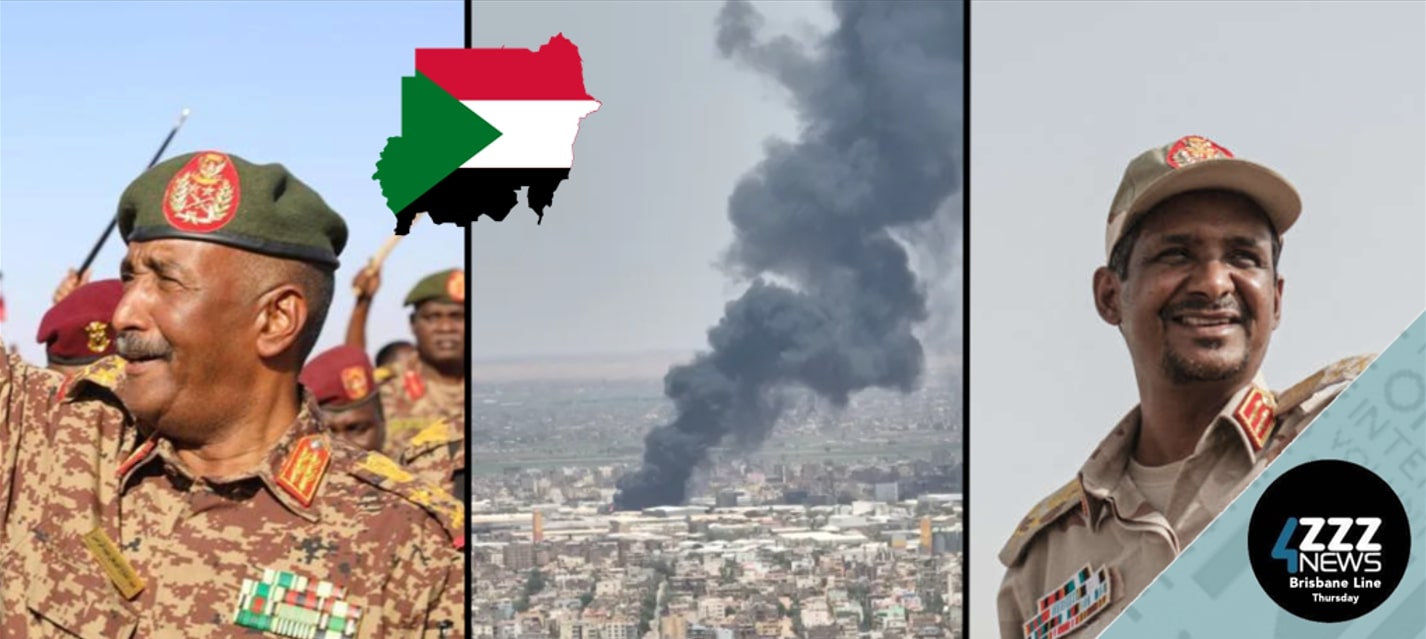Sudan on the Brink: The Battle for Power, Survival, and Humanity
Shurat Rana Rushmi | 20 October 2024
The ongoing civil war in Sudan has spiraled into a devastating crisis, transforming a nation once brimming with hope into a battlefield of unimaginable suffering. Rooted in Sudan’s turbulent political and ethnic history, the conflict has seen an explosive clash between two military factions—the Sudanese Armed Forces (SAF) and the Rapid Support Forces (RSF). This war is not only about power but also the soul of Sudan itself, as millions of civilians face displacement, death, and a humanitarian catastrophe largely ignored by the international community.
Sudan’s descent into civil war began long before 2023, with years of political instability and military coups. In 2018, a popular revolution ousted longtime dictator Omar al-Bashir, fueling hopes for democratic change. However, this optimism was short-lived. In 2021, two years after Bashir’s removal, General Abdel Fattah al-Burhan and Mohamed Hamdan Dagalo (Hemedti), head of the RSF, orchestrated a military coup that dismantled Sudan's transitional government. Their power-sharing agreement soon fell apart, giving way to violent power struggles between the SAF and RSF. The tension between these two factions escalated in April 2023 into all-out war, ripping the country apart. What began as a political struggle quickly morphed into a full-scale civil war, leaving millions vulnerable. Yet the conflict has deeper roots than mere political rivalry—it is underpinned by a complex web of ethnic and sectarian tensions. The RSF, initially formed to quell insurgencies in Darfur, has strong ties to Sudan’s Arab-majority regions, particularly in the west. Many RSF fighters follow an Arab-supremacist ideology, leading to targeted violence against Sudan’s African tribal groups. In contrast, while the Sudanese Army is ethnically diverse, the violence it has committed in conflict zones often echoes the ethnic divisions that fuel the war. Both factions have perpetrated atrocities, including ethnic cleansing, contributing to a vicious cycle of violence.
The humanitarian toll of the war is staggering. More than 125,000 people have died from violence, starvation, and disease. Over 26 million people—nearly half of Sudan's population—are facing extreme food insecurity, with famine conditions affecting more than 1 million. The war has triggered one of the largest refugee crises in recent history, displacing 15 million people. The healthcare system is in ruins, with over 70% of medical infrastructure destroyed, leading to surges in preventable diseases. Education has also collapsed, leaving over 19 million children unable to attend school. Women, in particular, have borne the brunt of the violence. Abductions, sexual violence, and abuse at the hands of militias have become all too common. These gender-specific crimes, often exacerbated by the lawlessness of the war, highlight the urgent need for international intervention to protect civilians and hold perpetrators accountable.
The international response to Sudan’s crisis has been woefully inadequate. Humanitarian aid efforts are underfunded, with only 56% of the 2024 funding requirements met. While initiatives like the Aligned for Advancing Lifesaving and Peace in Sudan (ALPS) Group have sought to mediate peace, these efforts have largely been ineffective. Sudan’s geopolitical position, coupled with limited global attention, means the country’s suffering remains largely unseen. The involvement of foreign powers, including Russia, Iran, and the UAE, who have supplied weapons to both sides, has further exacerbated the conflict. The failure of the international community to condemn these actions or impose sanctions has allowed the war to persist without meaningful intervention.
Despite these challenges, there is hope. Sudanese civilian groups, led by figures such as former Prime Minister Abdalla Hamdok, are working tirelessly to provide humanitarian aid, support displaced families, and push for peace. These groups, however, are constrained by a lack of funding, political support, and international attention.The international community must step up. Governments worldwide must provide substantial humanitarian assistance and push for an immediate ceasefire. Support for Sudanese-led peace initiatives is critical, as is holding accountable those who are fueling the violence, including foreign actors supplying weapons. Sudan’s civil war is a tragedy that demands urgent attention. The suffering of its people should no longer be ignored.As global citizens, we must act to support those on the frontlines and work toward bringing an end to this brutal conflict. Sudan’s future hangs in the balance, and the world cannot afford to stand idly by.
